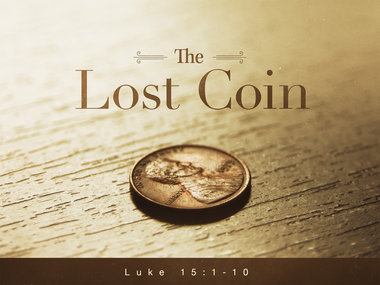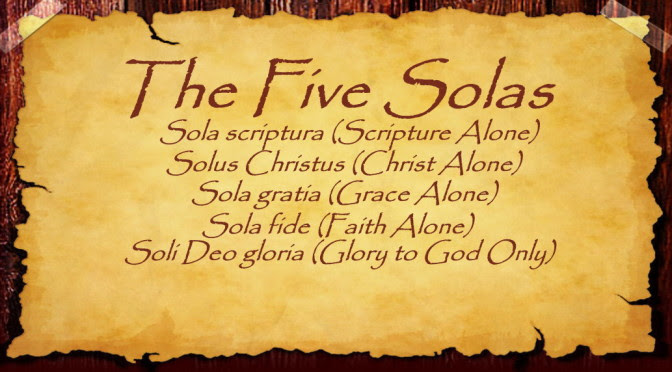 The Amazingly Graced Life of John Newton who authored the old hymn ‘Amazing Grace’ resonates with the Parable of the Lost Coin. God found Newton who was once hopelessly lost, so blind and groping in darkness (Ps 53:2). The word lost in Scripture means what it means outside of Scripture. It means lost, either literally or figuratively (Ps 119:176). In the Biblical concept, to have gone astray like a lost coin or a lost sheep refers to people who lack everlasting life (Jer 50:6). In Luke 15, Jesus’ three classical parables point to our everyday spirituality and the spiritual height of God who searches for us. Just as leprosy is a metaphor for all that is wrong in this world and in our lives, Jesus’ trinity of parables are beyond mere repetition of the same doctrine under different metaphors. The one truth taught in the three parables points to the redemptive and restoring works of the Holy Spirit through the church.
The Amazingly Graced Life of John Newton who authored the old hymn ‘Amazing Grace’ resonates with the Parable of the Lost Coin. God found Newton who was once hopelessly lost, so blind and groping in darkness (Ps 53:2). The word lost in Scripture means what it means outside of Scripture. It means lost, either literally or figuratively (Ps 119:176). In the Biblical concept, to have gone astray like a lost coin or a lost sheep refers to people who lack everlasting life (Jer 50:6). In Luke 15, Jesus’ three classical parables point to our everyday spirituality and the spiritual height of God who searches for us. Just as leprosy is a metaphor for all that is wrong in this world and in our lives, Jesus’ trinity of parables are beyond mere repetition of the same doctrine under different metaphors. The one truth taught in the three parables points to the redemptive and restoring works of the Holy Spirit through the church.
The Bible provides a Christological reflection about God’s quest for us as portrayed in the person and the work of Jesus. The lost sheep in the parable refers to a believer, one of the 100 sheep in the fold who strayed away from the Lord, lost in prayer, holy, biblical, and moral life. God, the searcher always in love took the risk against all economic laws and philosophy, exposing other 99 to danger in order to search for the lost sheep (Lk 15: 4-6). In the Parable of the Lost Coin, a woman ‘loses one coin.’ One of the ten coins on the bracelet refers to a believer who strays from the Lord (Lk 15:8-9). She turned down the house looking for a coin. Summarily, the Lord Jesus Christ is speaking the same kind of lostness as the lost sheep, lost coin, and the lost son. The prodigal son was lost to his father in the sense that his father no longer experience fellowship with him daily. The three parables points to three ways of being lost and three ways of God’s intervention.
A coin is an inanimate object, with no feeling of loss. The reflection is that atimes, people find themselves in this situation, spiritually dead, so far from God like the prodigal son in far away country, having no sense of spiritual loss. Until the prodigal son came to his senses spiritually, he was lost. Many, though physically successful are wandering in self-righteousness, lost like a coin without knowing. A lost sheep is more valuable than a coin because of mobility, a sense of feeling, appetite, sound, and taste. The problem is that lost sheep easily compromise spiritually. They are aware they are in a mess, that they are lost and cry for help, however, they are fundamentally unable to help themselves. A lost son is more complex and not like a lost coin nor lost sheep with ability to cry for help. A lost son is rationally and consciously in rebellion against his father. He is interested in the pleasure and heritage of his father, living in high taste in joblessness. God respect our freedom until we come to our senses through some hard experiences of life.
With reference to Newton’s testimony, the God in Christ initiated the search through the woman, a symbol of the church called and sent out to seek the lost sinner in the cracks, in the dust, in the debris of a dirty world of sin. The church is sent to turn on the light of the gospel to sweep, to search, to pursue the sinner in every dark and hidden place. The Parable of the lost coin points to the theology shaped by Christology where God in Christ goes to find sinners, the helpless, the dead, and the rebellious.[1] The woman in this parable represents the church and the husband represents Jesus hence, ‘the coins symbolize the marriage portion which Jesus has entrusted to his church’s care.’ The reflection is that the marriage portion consisting of ten silver coins in the parable of Jesus resonates with the marriage portion consisting of ten commandments in the covenant of Christ with Israel. However, just as the Jews of Christ’s day had lost the profound meaning of the Sabbath, the Old Testament indicates how Israel repeatedly forgot the Sabbath. The challenge of the parable of the lost coin to us today is to ask whether the church today has lost sight of the Sabbath bearing in mind that the lost coin of the church is the ‘lost conscience’ of the nation. The lost coin of the church is not structure or money, it is not building or technology, but theology without Christology. The lost coin of the church is theology without Bible, lost coin of evangelism, holiness, prophecy, apostle, teachers, and soul winning (Acts 3).
Theology without Christology promotes human reasoning above Christ’s price for human redemption. Christ-centred preaching as a divine message of new life to lost sheep and dead sinners challenges the church to arise and sweep away the pretensions of scientific atheism, philosophy, and theology that lacks answer to Christ’s own question, ‘who do you say that I am’ (Mk 8:29). Bearing in mind that a church can never rise than its pulpit, the Church’s lost coin of evangelistic preaching, reasoning and explaining and providing from the Scripture that Jesus is the Christ have caused people to choose secularism over faith. Secularism has filled the vacuum left by the church’s lost coin of holiness preaching, soul winning and prayer. The lost coin of Bible based sermon that wrestle with darkness consciences until they see the need for reconciliation with God through Jesus Christ need to be resurrected. The lost coin of open-air, street preaching, personal evangelism, disciple making and ceaseless prayers are behind the present decline in the church. The lost coin of evangelistic preaching has resulted in the lost of personal evangelism and when there is no passion for souls in the pulpit, we experience decline in the pews.
God is calling the church back to mission shaped by theology with Christology, seeking for the lost generation that have strayed from biblical Christianity and fallen into the dust of sin, pride, philosophy, modernity, and secularism. The lost coin of church’s spirituality and practices may become obscure by the domination of the secular and philosophical dust that blinds people from eternal truth (Ps 22:19, 72:9). To find the ‘lost coin,’ the church must turn on the light of the Gospel of Christ in every house and family, sweep the floor of the nation with the Bible based devotional practices, search and witness for the kingdom of God. We are to follow God’s divine plan who sent his son, Jesus, to seek and save the lost. Just as the people in the three parables rejoiced when they found what was lost, the church will soon rejoice in the coming revival and restoration of lost coins, lost sheep and lost sons.
[1]. Jackson, Wayne, The Parables in Profile: Exergetical Outlines of the Parables of Christ (Stockton , CA, Wayne Jackson, 1978), p. 43.










Recent Comments